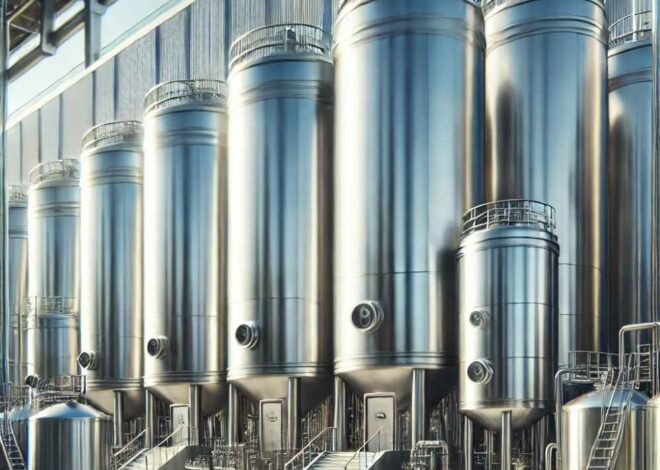
Wood As a Renewable Resource: The Environmental Benefits of Biomass Heating
Wood has been utilized as a source of energy for thousands of years, providing warmth, cooking fuel, and building materials to civilizations around the world. In recent decades, there has been a renewed interest in wood as a renewable resource for energy production, particularly in the form of biomass heating. Biomass heating involves burning organic materials such as wood pellets, chips, or logs to generate heat and power, offering an environmentally friendly alternative to fossil fuels. In this comprehensive exploration, we will delve into the environmental benefits of biomass heating, examining its role in mitigating climate change, reducing carbon emissions, and promoting sustainable land management practices.
The Renewable Nature of Wood Biomass
Wood biomass, including wood chips, pellets, and residues from forestry and agricultural activities, serves as a renewable and sustainable energy source.
Unlike fossil fuels, which are finite and contribute to carbon emissions when burned, wood biomass is considered renewable because trees can be replanted and grown to replenish the biomass supply.
Additionally, the carbon dioxide released during combustion is offset by the carbon dioxide absorbed by trees during photosynthesis, making wood biomass a carbon-neutral energy source when managed sustainably.
Its versatility and eco-friendly attributes make it a promising option for meeting energy needs while reducing dependence on fossil fuels.
Moreover, the UK’s most slow burning logs are a notable component of this renewable energy solution.
Introduction to Biomass Heating
Biomass heating harnesses the energy stored in organic materials such as wood, agricultural residues, and waste products to produce heat and electricity.
Wood biomass, in particular, has emerged as a popular and sustainable fuel source for heating applications due to its abundance, renewability, and low environmental impact.
Biomass heating systems range from small-scale residential stoves and boilers to large-scale industrial power plants, offering versatility and scalability to meet the diverse needs of consumers and industries.
Sustainable Forestry Practices
The use of wood biomass for heating promotes sustainable forestry practices and responsible land management strategies.
Unlike fossil fuels, which are finite resources that cannot be replenished, wood biomass is derived from renewable sources such as forests and plantations that can be managed and replenished through proper forest management techniques.
Sustainable forestry practices include reforestation, selective harvesting, and habitat conservation, ensuring the long-term health and viability of forest ecosystems while providing a continuous supply of biomass fuel.
Carbon Neutrality and Cycle
Wood biomass is considered carbon-neutral because it recycles carbon dioxide (CO2) that is already part of the natural carbon cycle.
When trees grow, they absorb CO2 from the atmosphere through photosynthesis, converting it into biomass and releasing oxygen (O2) as a byproduct.
When wood biomass is burned for heating, it releases CO2 back into the atmosphere, completing the carbon cycle.
Unlike fossil fuels, which release stored carbon that has been sequestered underground for millions of years, wood biomass releases carbon that is part of a relatively short-term carbon cycle, making it a more environmentally sustainable option.
Environmental Benefits of Biomass Heating
Reduction of Greenhouse Gas Emissions
One of the primary environmental benefits of biomass heating is its ability to reduce greenhouse gas emissions and mitigate climate change.
By displacing fossil fuels such as coal, oil, and natural gas, biomass heating systems help to avoid the release of carbon dioxide and other pollutants that contribute to global warming and air pollution.
According to studies, biomass heating can achieve significant reductions in CO2 emissions compared to conventional heating methods, making it a valuable tool for achieving climate targets and reducing the carbon footprint of buildings and industries.
Air Quality Improvement
Biomass heating offers environmental benefits beyond greenhouse gas emissions reduction, including improvements in air quality and public health.
Unlike fossil fuel combustion, which emits harmful pollutants such as sulfur dioxide (SO2), nitrogen oxides (NOx), and particulate matter (PM), biomass combustion produces fewer emissions and pollutants.
Modern biomass heating technologies, such as advanced combustion systems and emissions control devices, further minimize air pollution and ensure compliance with strict environmental regulations.
Waste Reduction and Resource Utilization
Biomass heating provides an opportunity to repurpose and utilize organic waste materials that would otherwise be discarded or landfilled.
By converting agricultural residues, forestry byproducts, and organic waste streams into valuable energy resources, biomass heating helps to reduce waste generation, conserve landfill space, and promote resource efficiency.
Additionally, biomass heating can contribute to the development of local bioeconomies, creating jobs and economic opportunities in rural communities while reducing reliance on imported fossil fuels.
Challenges and Considerations
Sustainability and Land Use Impacts
While wood biomass offers environmental benefits as a renewable energy source, its sustainability depends on responsible forest management practices and careful consideration of land use impacts.
Unsustainable forestry practices, such as clear-cutting and habitat destruction, can degrade ecosystems, disrupt biodiversity, and compromise the long-term health of forest resources.
To ensure the sustainability of biomass heating, it is essential to implement safeguards, certifications, and regulations that promote sustainable forestry practices and protect sensitive habitats.
Efficiency and Technological Innovation
Improving the efficiency and performance of biomass heating systems is crucial for maximizing environmental benefits and energy savings.
Advances in technology, such as high-efficiency boilers, combined heat and power (CHP) systems, and biomass gasification technologies, can enhance the efficiency, reliability, and affordability of biomass heating solutions.
Additionally, research and development efforts focused on biomass conversion processes, fuel logistics, and emissions reduction technologies can further optimize the environmental performance of biomass heating systems.
Lifecycle Assessment and Carbon Accounting
Assessing the environmental impacts of biomass heating requires a comprehensive understanding of its lifecycle, from feedstock production and harvesting to fuel processing, combustion, and disposal.
Lifecycle assessment (LCA) methodologies and carbon accounting tools can help evaluate the overall environmental footprint of biomass heating systems, taking into account factors such as carbon sequestration, emissions intensity, and land use change effects.
By conducting rigorous LCAs and carbon accounting analyses, policymakers, industry stakeholders, and consumers can make informed decisions and ensure that biomass heating contributes to sustainable development goals.
Conclusion
In conclusion, biomass heating offers significant environmental benefits as a renewable energy solution for heating and power generation.
By harnessing the energy stored in organic materials such as wood biomass, biomass heating systems help reduce greenhouse gas emissions, improve air quality, and promote sustainable land management practices.
While challenges such as sustainability, efficiency, and lifecycle assessment must be addressed, the potential of biomass heating to contribute to a sustainable energy future is undeniable.
By embracing biomass heating technologies, policymakers, businesses, and communities can transition towards a cleaner, greener, and more sustainable energy landscape for generations to come.
You May Like Also:












